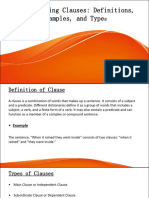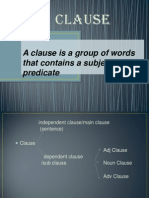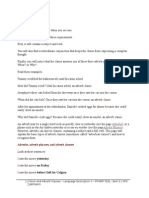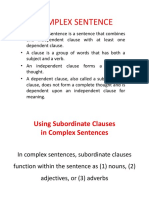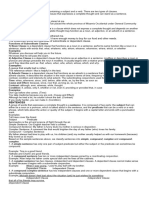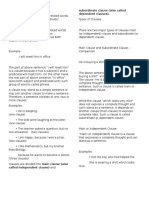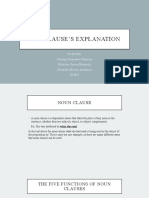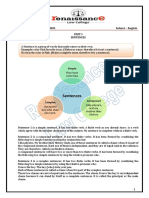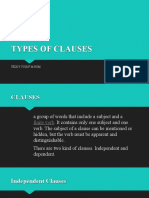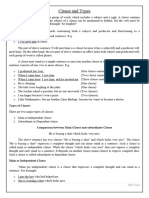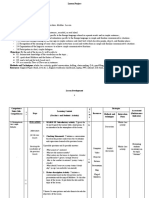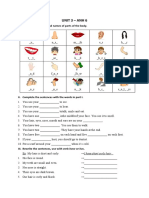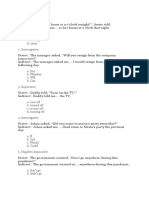0% found this document useful (0 votes)
51 views2 pagesComplex Structures
Adverb clauses, noun clauses, and adjective clauses are complex sentence structures that add information to a main clause. [1] Adverb clauses begin with subordinators like "while" or "because" and provide details about time, reason, or condition. [2] Noun clauses function as subjects or objects using subordinators like "that" or "when". [3] Adjective clauses add description to nouns using subordinators like "who", "which", or "where".
Uploaded by
Arfan AhmedCopyright
© © All Rights Reserved
We take content rights seriously. If you suspect this is your content, claim it here.
Available Formats
Download as PDF, TXT or read online on Scribd
0% found this document useful (0 votes)
51 views2 pagesComplex Structures
Adverb clauses, noun clauses, and adjective clauses are complex sentence structures that add information to a main clause. [1] Adverb clauses begin with subordinators like "while" or "because" and provide details about time, reason, or condition. [2] Noun clauses function as subjects or objects using subordinators like "that" or "when". [3] Adjective clauses add description to nouns using subordinators like "who", "which", or "where".
Uploaded by
Arfan AhmedCopyright
© © All Rights Reserved
We take content rights seriously. If you suspect this is your content, claim it here.
Available Formats
Download as PDF, TXT or read online on Scribd
/ 2





